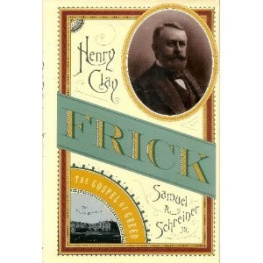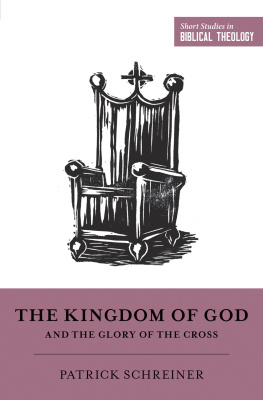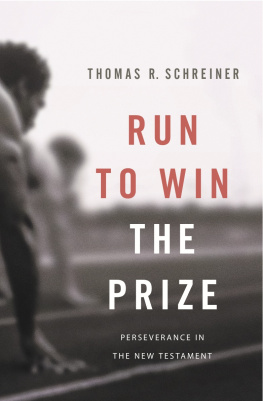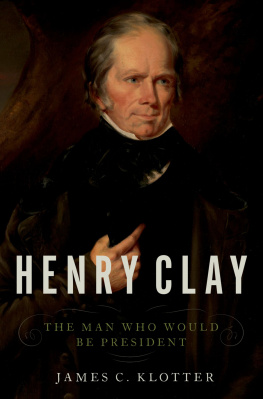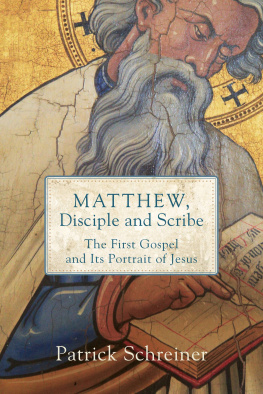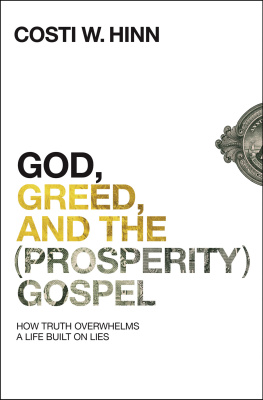Samuel A. Schreiner - Henry Clay Frick: The Gospel of Greed
Here you can read online Samuel A. Schreiner - Henry Clay Frick: The Gospel of Greed full text of the book (entire story) in english for free. Download pdf and epub, get meaning, cover and reviews about this ebook. year: 1995, genre: Detective and thriller. Description of the work, (preface) as well as reviews are available. Best literature library LitArk.com created for fans of good reading and offers a wide selection of genres:
Romance novel
Science fiction
Adventure
Detective
Science
History
Home and family
Prose
Art
Politics
Computer
Non-fiction
Religion
Business
Children
Humor
Choose a favorite category and find really read worthwhile books. Enjoy immersion in the world of imagination, feel the emotions of the characters or learn something new for yourself, make an fascinating discovery.
- Book:Henry Clay Frick: The Gospel of Greed
- Author:
- Genre:
- Year:1995
- Rating:5 / 5
- Favourites:Add to favourites
- Your mark:
- 100
- 1
- 2
- 3
- 4
- 5
Henry Clay Frick: The Gospel of Greed: summary, description and annotation
We offer to read an annotation, description, summary or preface (depends on what the author of the book "Henry Clay Frick: The Gospel of Greed" wrote himself). If you haven't found the necessary information about the book — write in the comments, we will try to find it.
Henry Clay Frick: The Gospel of Greed — read online for free the complete book (whole text) full work
Below is the text of the book, divided by pages. System saving the place of the last page read, allows you to conveniently read the book "Henry Clay Frick: The Gospel of Greed" online for free, without having to search again every time where you left off. Put a bookmark, and you can go to the page where you finished reading at any time.
Font size:
Interval:
Bookmark:
Samuel A. Schreiner, Jr.
St. Martins Press New York
Henry Clay Frick. Copyright 1995 By Samuel A. Schreiner, Jr. All rights reserved. Printed in the United States of America. No part of this book may be used or reproduced in any manner whatsoever without written permission except in the case of brief quotations embodied in critical articles or reviews. For information, address St. Martins Press, 175 Fifth Avenue, New York, N.Y. 10010.
Design by Sara Stemen
Library of Congress Cataloging-in-Publication Data
Schreiner, Samuel Agnew.
Henry Clay Frick: the gospel of greed
Samuel A. Schreiner, Jr. p. cm.
ISBN 0-312-11821-X
1. Frick, Henry Clay, 1849-1919. 2. BusinessmenUnited StatesBiography. 3. Capitalists and financiersUnited StatesBiography. I. Title.
I IC102.5.F75S34 1995
118,092 -dc2
|B|
94-46628
CIP
First Edition: April 1995
1098765432 1
To my wife, Dorrie, who long ago planted the seed that grew into this work when she suggested writing about the fabulous moneymakers of my native Pittsburgh area.
ANDREW Carnegie, the penniless Scotch immigrant who turned steel into gold in 1901 to become the richest man in America, couldnt stand to be disliked. For years he was troubled by the fact that the man most responsible for his great wealth hated him. He could almost feel the heat of that hatred drifting up New Yorks fashionable Fifth Avenue, where he and Henry Clay Frick lived in palatial homes within walking distance of each other. From the day of their parting in Pittsburgh, Carnegie never saw nor heard a word from his former partner despite the fact that they still moved in the same financial circles and shared front-page coverage in the newspapers for their philanthropic and political activities and their frequent trans-Atlantic crossings. Finally, when his health was failing fast, Mr. Carnegie sent word to Mr. Frick that he would like to arrange a friendly meeting during which old grievances would be set aside.
The response, delivered verbally through Carnegies messenger, must have been a shock to a man of Carnegies ebullient and sunny nature: Tell Mr. Carnegie Ill see him in hell, where we both are going.
Although nobody has suggested that Fricks blunt words were responsible, Carnegie died in August 1919, soon after receiving them. If it happened at all, the meeting Frick foresaw was not long in coming. Before the year was out, Frick, a considerably younger man, died, too.
It may be that Frick, a man of few words and fewer illusions, intended to strike a note of grisly humor. Instead, he struck a note of grim truth. Unlike Carnegie, Frick never pretended that the business of business was earning the love of his fellow man. The business of business was making money, and few men in American history have been better at making money than Henry Clay Frick. In 1910, with Carnegie and John D. Rockefeller retired and Andrew Mellon still largely unknown, Henry Clay Frick was listed by The New York Times as one of the nations seven leading financiers. Looking back eighty years, a modern historian described Frick as the plenipotentiary of his age. In a tough, competitive world, a man didnt reach such heights by being loved. Frick knew it, and he expressed nothing but scorn for what he regarded as Carnegies hypocritical posturings.
Fricks toughness, particularly in his stoic acceptance of the shedding of bloodeven his ownto put labor in its place, made him a hero to peers with names like Rockefeller, Morgan, Harriman, Stillman, Vanderbilt, and Mellon, the wealthiest of the wealthy. In a tone of reluctant admiration, Matthew Josephson, the chronicler of the robber barons, called Frick a master of all honorable tricks. But Fricks arrogance and ruthlessness in financial matters caused him to be called many other things, among them toad and tyrant. He was undoubtedly of that goodly company that an ungrateful President of Fricks own making called malefactors of great wealth.
Henry Clay Frick was the quintessential capitalist, a truly representative figure of Americas Gilded Age. The span of his adult years corresponded almost exactly with that of the fantastic period of explosive growth in material wealth that made the United States of America the richest, most powerful nation on earth. Everything was up for grabs, and the spoils were plucked by those with the greediest grasp. Moneymaking was the national sport. Men of business were the admired celebrities of the age, as politicians and soldiers had been before them and as athletes and actors would be in an age to come. What Frick and his fellow architects of corporate America did and said was readily accepted as the ethic of the business world, the dominant ethic of American society then and again, nearly a century later, in the time of Ronald Reagan. In a popular book, Andrew Carnegie proudly proclaimed a happy Gospel of Wealth, but, as Frick revealed in his bitter joke, the moneymakers lived by a gospel of greed.
The sharp edges of the portraits of these early men of money have been softened by time and the benevolences that have made their names synonymous with benign institutions. In New York, they would be known on first thought for the Frick Collection, Carnegie Hall, the Morgan Library, Rockefeller Center; in Pittsburgh, it would be Carnegie Mellon University (an odd combination in the eyes of history), Carnegie Library, Frick Park, Clayton (the Frick home) and its associated museum. Just as they established the ethic of acquiring unspendable personal wealth, they set an example of its distribution for public purposes that the rich still follow to this day. One shared passion among the very rich, then and now, was collecting antiques and works of fine art from around the world. In this, as in business, Frick occupied the position of primus inter pares. His collection of paintings and objects, housed in the Fifth Avenue home where he died and now open to the public, is a glittering gema tribute to his self-educated taste and evidence that he knew all the honorable tricks of collecting as well as doing business.
Despite his prominence, Henry Clay Frick wasand remainssomething of an enigma. He was a silent man, a private man. He didnt make speeches or write articles and books. As a sworn witness in court or at legislative hearings, he was reticent and evasive to the point of contempt. He did grant interviews when absolutely necessary or unavoidable, as when he was cornered by shipboard reporters on one of his European voyages. Although polite and articulate on these occasions, he conveyed little in the way of hard information or personal opinion. A behind-the-scenes man in both business and politics, he quite literally took the cash and let the credit go. A firm family man, Frick was not obliged by scandal to open the door to his private affairs as were boisterous Charlie Schwab, his colleague in steel, and shy Andrew Mellon.
As of this writing, only one biography of Henry Clay Frick has been published. It was a worshipful book printed by Scribners in 1928, and privately reprinted in 1936. Although there are reports of other books in the works, scholars and biographers have been discouraged through the years by the watchdog attitude of Fricks long-lived daughter, Helen Clay Frick. Not only did Miss Frick stand guard over the family archives, but she sallied forth to sue a distinguished historian who included some unflattering adjectives about her father in one of his books. To a lesser degree family reticence and a desire to control whatever is written about their fortunes founder remains. But Fricks part was so large on the stage of the Gilded Age that he is lighted up by spots shining from the public prints of his day and the memoirs of his peers. As an effective plenipotentiary, or ambassador among them, his works and personality were necessarily recorded.
Font size:
Interval:
Bookmark:
Similar books «Henry Clay Frick: The Gospel of Greed»
Look at similar books to Henry Clay Frick: The Gospel of Greed. We have selected literature similar in name and meaning in the hope of providing readers with more options to find new, interesting, not yet read works.
Discussion, reviews of the book Henry Clay Frick: The Gospel of Greed and just readers' own opinions. Leave your comments, write what you think about the work, its meaning or the main characters. Specify what exactly you liked and what you didn't like, and why you think so.

